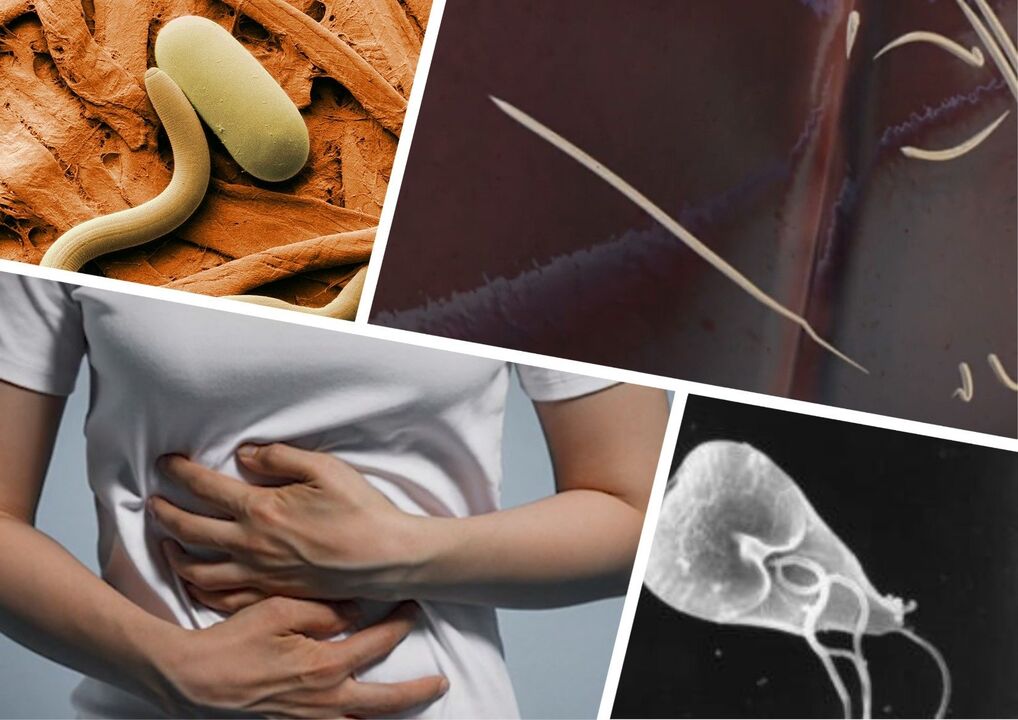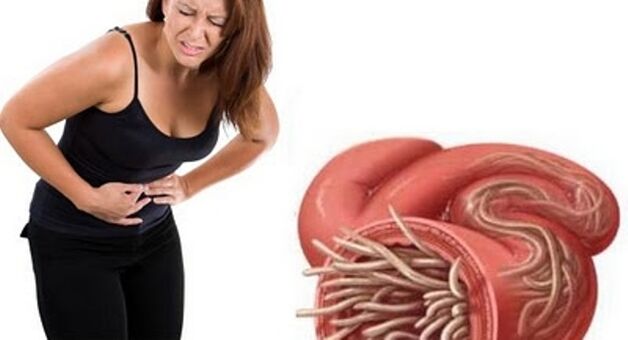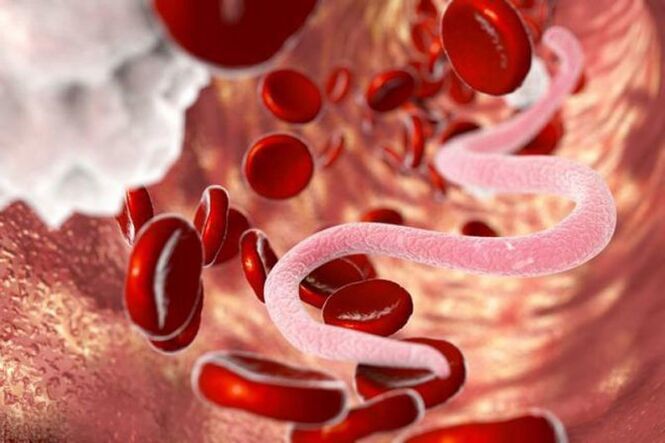
Worms: parasites that live in the body (most often in intestines) of humans and animals.It can become infected everywhere: according to doctors, about 80% of people are infected with helminths.
To effectively treat adult worms, drugs must be selected taking into account the type of parasites that live in the body.Otherwise, the treatment will be ineffective and can damage the patient's health.
Where and how can you infect with worms?
You can collect infection everywhere: in nature, in a catering establishment and even at home.Helminants are transmitted through unusailed hands, badly washed vegetables and fruits, especially those that grow on the floor.
Meat and fish that have undergone insufficient heat treatment can also cause infection.
Helminosis is transmitted from a sick person to a healthy person, through a handshake or contact with saliva.Most of the time there are worms in children: they are infected through common toys, unwashed hands.
If the family has a child with helminthiasis, all adults also need to undergo prevention so as not to become a source of reinfection for the child after recovery.
You can infect a pet.Therefore, the antravity of cats and dogs is necessary regularly, every three months.And after contact with homeless animals, wash your hands well.
Symptoms that indicate the presence of parasites
The signs of the presence of worms in the intestine are a strong change in body weight (weight loss or weight gain due to metabolic disorders), alterations in the digestive system, which are easy to confuse with an acute or chronic gastrointestinal disease.The main signals that indicate that a person has a heline invasion:

- Stool disorder: diarrhea, constipation, stools of liquid (when the intestines empty no more than 2 times a day, but the chair is not decorated).
- Swelling, colic.
- Nausea.
- Vomit.
- Lack of appetite.
- Pain and spasms in the intestine.
In the vital activity process, worms distinguish toxins that can affect people differently.In some, they cause frequent headaches, in others, irritability or disorder of eating behavior, for the third, skin rashes, all kinds of allergies.
In any case, in the context of the helminical invasions, the protective functions of the body are reduced, immunity weakens.It is more likely that such a person suffers colds.
Worms: What species parasitize in humans?
Not all types of helminths are dangerous for humans: some of the parasites live only in animal organisms.
Around 70 types of helminths are parasitized in people, which are divided into 3 main groups:
Round worms
A few centimeters are reached, in the cross section, its body has a round shape.This is one of the most common types of helminths.The Nematod Group includes worms and ascarides, which are often diagnosed, especially in children.This also includes blazoles.They live mainly in the intestines.
Tape
The length can reach 18 m, the average length is 1-5 m.The body is flat, there is a cup of suction in the head, which is linked to the intestinal mucosa.These are ribbons and had mainly rooted in the small intestine, but they can also be established in other organs.Its characteristic feature: Helminth itself, not a larva itself, falls into the human body: mature in the body of an intermediate host.They are infected with animals, as well as when they use meat and fish that have undergone insufficient heat treatment.
Department
They have a wide and flat body, they reach a few centimeters in length, less frequently, a meter and a half.These are several types of bias, bicomer, trematod.They can be established in the ducts (bile, tear channels and in almost any organs).
How to determine the presence of Helmintias?

The easiest way is to approve the analysis of the feces.But for a precise diagnosis, it must perform an analysis 3-4 times, because during a period in which the parasites are not active, it is quite difficult to detect their presence.
Antibodies occur for some types of helminths in the blood.By blood analysis, you can determine the presence of these markers and establish the type of worms.But for this you will have to take some tests, for every expected aspect.
Who treats Helminthias?
The main specialists in Helmintos are specialists in infectious parasitologists.But full -time parasitologist is far from being in all clinics: these specialists usually work as regional clinics and research institutes.
An infectious or gastroenterologist disease specialist based on test results can prescribe a treatment regime.It will help you choose the best anti -miles and insurance media for a person who will help quickly drive worms without consequences for the body.
The car -medical in this case is quite dangerous: worms' tablets are quite toxic, they have many contraindications.If the choice of the type of worms, the medicine will at least be ineffective.If the dose is exceeded, antihelmintics can cause severe poisoning.



























